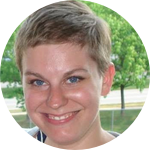About This Project
Research on girls has shown that being seen and treated as objects has negative consequences, including lower academic performance. Little attention has been paid to how girls themselves experience and deal with sexualization. We will conduct a Participatory Action Research (PAR) study with diverse adolescent girls to understand 1) how adolescent girls experience and respond to sexualization and 2) how young people and adults can work together to address this social problem.
Ask the Scientists
Join The DiscussionWhat is the context of this research?
In 2007, the American Psychological Association Task Force released a report on the widespread issue of the sexual objectification of girls, summarizing research on its association with depression, negative body image, low self-esteem, cognitive deficits and ambition. Since then, there has been an explosion of research on this topic, mostly with younger girls, demonstrating these effects and more (Smolak, 2011). This phenomenon also affects boys and society in general (Tolman et al., 2015). But adolescent girls themselves, in particular diverse girls living in urban environments, have not weighed in. We do not know what it is like for them to deal with being sexualized in school, public spaces and their communities or how they handle it.
What is the significance of this project?
Research illuminates the problem but does not offer substantive or empirically-based solutions. Adults often design "interventions" that teens, especially marginalized youth, find boring and not relevant to their lives. This Participatory Action Research (PAR) project will engage participants' wisdom and creativity in conducting and disseminating research and coming up with strategies grounded in that new knowledge to strengthen their ability to hone and support their strong voices for positive change. There has been much hand-wringing about how girls are represented, looked at and treated as objects. Solutions that have worked (i.e., SPARK Movement) engage youth as change makers. PAR is a growing research method and this project will contribute to its standing in the academy.
What are the goals of the project?
The goal of this project is for girls to show and share how sexualization affects them and their community. The girls will meet weekly with our team to discuss the issue and how it affects them, formulate their exact research question, determine and learn methods (survey, focus groups, PhotoVoice) for collecting data and sampling strategy. After data collection, they will learn analytic techniques (basic stats, identifying patterns in interviews or photos) and apply them to generate findings. They will decide how and to whom to report those findings (video to show at school, white paper report, art project) and produce it. We'll also plan how to report on the project together in academic settings. This PAR project will be "rapid" and more structured than is often the case.
Budget
The point of a PAR project is to inspire social change through research. Planning the study, conducting analysis and reporting findings requires regular meetings; all participants are paid for their work. Eight students or "co-researchers" will earn $200 for the ten weeks of the project and a graduate student research student will also receive a stipend. An incentive of $15 gift cards for 50 participants ensures a diverse sample. Findings from PAR with youth often take arts-based formats (videos, plays), as well as more traditional forms (a report with recommendations, meetings with stakeholders); supplies will be used to produce findings.
Stretch Goals:
At $4,000 -- we will be able to pay for snacks and beverages at our weekly meetings.
At $5,000 -- we will be able to pay youth co-researchers to present our research findings at an academic conference.
Endorsed by
Meet the Team
Team Bio
I work with a group of brilliant graduate students who study gender and sexuality in the lives of adolescents and adults. Jenn Chmielewski, a member of this group with deep research experience, will join me. The larger group will be part of the "team"; we meet together weekly to consult with each other, strategize solutions to challenges we are facing, make sense of our findings and disseminate our work. Our group has expertise in many research methods, including PAR.
Deborah Tolman
I have always been curious about adolescent girls' sexuality and how gender dynamics inform their experience. I have been studying sexuality since I was an undergrad at Harvard, which raised eyebrows back then. Now I am a professor of critical social psychology and have been doing innovative research on the topic for over 20 years using an array of research methods (interviews, focus groups, surveys and statistical analysis, often "mixing" them for stronger results). My book, Dilemmas of Desire, was an early example of bringing girls' voices to how we understand their experiences. I have a Masters in sex education from Penn and a PhD in developmental psychology, with a focus on adolescence, from Harvard. I have been working in public higher education most of my career; I have been a professor at San Francisco State and now at CUNY. I publish widely and speak in public venues frequently. As co-founder of SPARK Movement, my commitment to girls has grown to supporting them in being activists to fuel social change about how their bodies are treated and to recognize their strengths beyond how they look. These two ways of working come together in PAR and the creation of SPARK Research! Having done a successful PAR project with a group of girls and their teacher who wanted to know about slut-shaming in their school, I am working now with my students on various efforts to do critical research on gender and sexuality and ensuring that our work and that of our colleagues around the country, and eventually the globe, goes "beyond the academy" to inform what the public knows about gender and sexuality and policies that affect the lives of so many (SexGenLab).
Jennifer Chmielewski
I have been studying gender and sexuality since I was an undergraduate student at Dickinson College. I also have a Master of Education in Counseling Psychology from Teachers College, Columbia University. I am currently a doctoral student in the Critical Social/Personality Psychology program, and member of SexGenLab at The Graduate Center, CUNY. My work uses critical feminist theories and methods to explore women and girls’ lived experiences of gender, desire and sexual identity through an intersectional and social justice lens. In particular, I have focused on examining issues of sexualization in the lives of diverse adolescents and young women through a variety of research methods (experiments, surveys, interviews, focus groups). I am particularly interested in ensuring that this work on sexualization is relevant to the young women I conduct research with and can be used to fuel social change. To this end, I received training in PAR at the Critical Participatory Action Research Institute through the Public Science Project at the Graduate Center. I have engaged in participatory methods in my own work with LGBTQ adolescents of color on issues of sexualization in school. I am also a Research Blogger and the Research Blog Editor for SPARK Movement, translating psychological research on sexualization and sexuality about young women, for adolescent girls and young women.
Additional Information
An additional goal is for this project to serve as a "demonstration" for launching SPARK Research!, a PAR Initiative where girls, young people and adult allies, in community-based organizations, schools, clubs, or other groups, can work with researchers from CUNY to research and document sexualization as well as ways to fight back. A part of SexGenLab, a collaborative of professors and students doing research on gender and sexuality--and translating relevant research to engage in and contribute to public discussions of these issues--the current project will be a draw for other groups of young people and adults who work with them to do PAR projects with SPARK Research! We are working with the Public Science Project to develop this strategy of doing engaged research with, rather than on, co-researchers to bring their voices in a systematic way to the current public dialogue on gender and sexuality.
Project Backers
- 31Backers
- 116%Funded
- $4,386Total Donations
- $141.48Average Donation




